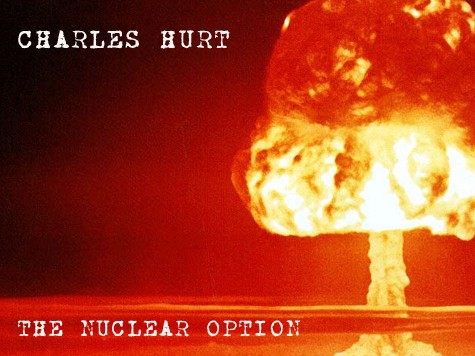OSAKA, Japan — America was stumped.
She needed a fresh pair of eyes.
Along came Donald Trump.
“But if we’re attacked, Japan doesn’t have to help us,” he told Maria Bartiromo on Fox Business Channel. “They can watch it on a Sony television.”
In Washington, a “gaffe” is when a politician accidentally says what he means.
In the State Department, this is called a “diplomatic crisis.”
But, in fact, Mr. Trump’s statement is a perfectly shrewd observation. Obviously, for 70 years now, America has been committed to the 1951 U.S.-Japan security treaty that put the United States on the hook for Japanese security.
It is worth remembering how we got there.
Ten years before that treaty was signed, the United States was desperately trying to mind her own business when Japanese fighter planes attacked Pearl Harbor. The ensuing war was one that the U.S. neither sought, started nor wanted.
This, of course, followed Germany’s assault on the world — and humanity.
Over the next four years, America spent $4 trillion in today’s dollars and lost more than 400,000 troops putting down the global assault launched by Japan and Germany.
No hard feelings now, of course, but these are the facts.
Once she got done cleaning up that whole mess, America spent billions and billions more helping to rebuild Germany and Japan so that they might join the civilized world and stop, you know, attacking foreign countries for no reason and sending train car loads of innocent people to die in gas chambers.
To be sure, fighting that scourge and rebuilding those countries was in the best interest of American and the entire world. But nobody benefited from American generosity, forgiveness, and largesse more than Japan and Germany.
Today, Japan and Germany are the third and fourth largest economies in the world.
In 1951, Japan was still digging out of the rubble we had turned them into. But they still could not be trusted with a military. They were the first to acknowledge that. So we agreed to protect them with our great military.
Today, Japan enjoys not just a robust economy — thanks to the United States and victorious allied countries — but also a powerful military.
So why is it that we still have a treaty that puts the United States on the hook for defending Japan while Tokyo does not have to lift a finger if the United States is invaded? It is a pretty good question.
We could really use their help on our southern border today.
churt@washingtontimes.com; @charleshurt

COMMENTS
Please let us know if you're having issues with commenting.